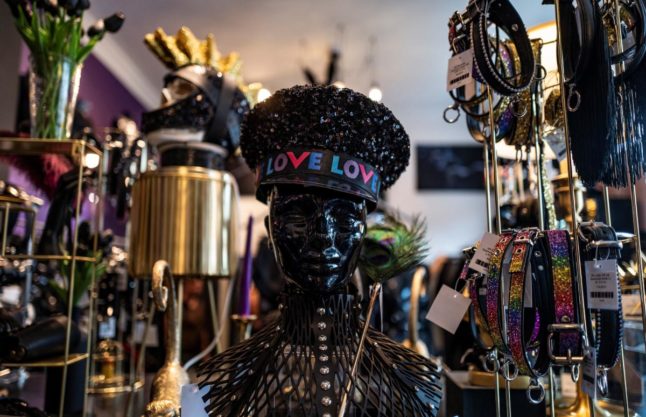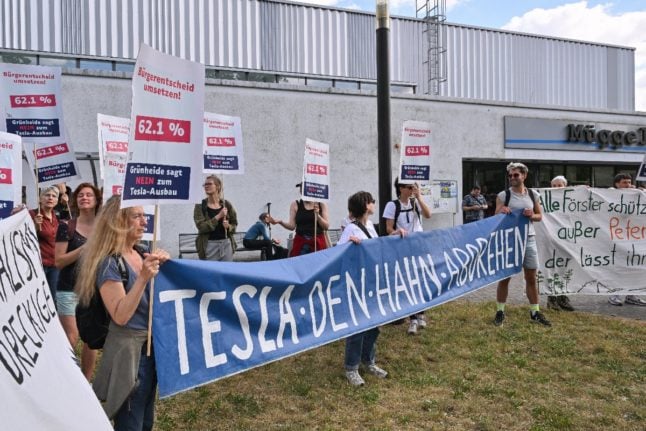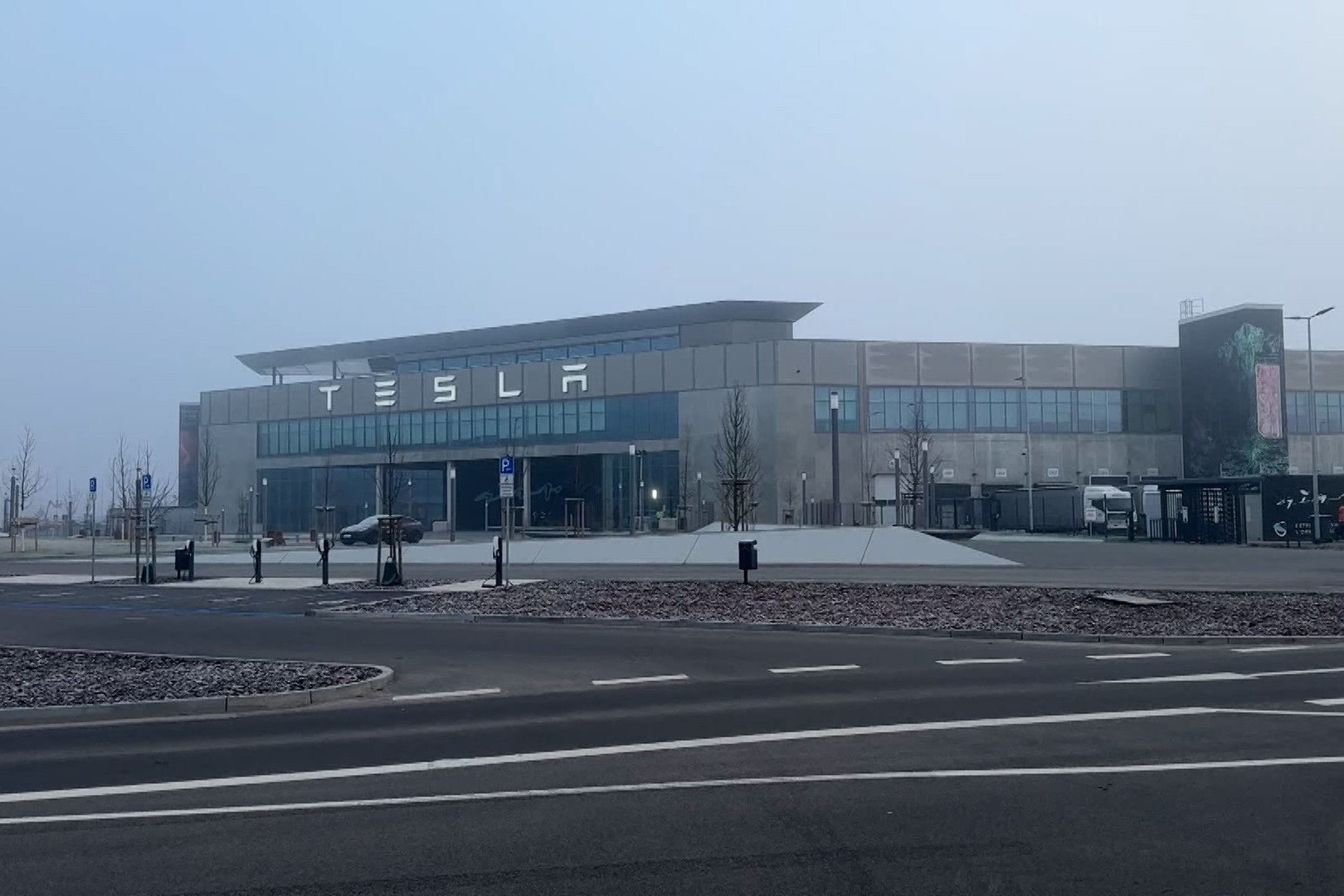Known throughout the world for their extravagance, Berlin’s clubs have fostered a taboo-free style, inspired by fetishism, that makes liberal use of leather and latex with accessories that pinch, poke and squeeze.
“Fetishwear” has its dedicated shops and well-known designers, and takes pride of place in the city’s two big summer festivals: the Technoparade, which took place in July, and Berlin’s pride march, one of the biggest in Europe, on Saturday.
It is in this summer party season that Shaham and his partner Lulu Neel have decided to make their latest pilgrimage to Berlin.
The couple fell in love with the city three years ago when they came across a community of clubbers “just dressing so much better than I had ever seen”, says Lulu.
“I wanted to be dressed like that,” says the young woman, a specialist in 3D digital design by day, who wears a black rope necklace with metal rings to a show organised by upstart clubbing label, The Code.
Purple and black
Shaham and Neel have refined their look over the course of repeated visits to the German capital.
He says his preference is for latex, lace and harnesses, and he likes to put his tattoos on show.
In Berlin, “You can be like that, and you can walk out to the street, you can get into the Uber and… you feel free”, says the 45-year-old.
“The clubs, the nights, the magazines that you find here — our clients say there is nothing similar in Paris, Rome, Milan, in Argentina or New Zealand,” says Gisela Braun, whose Schwarzer Reiter (Black Knight) boutique is one of the temples of fetish fashion in Berlin.
The shop, which opened 14 years ago, is decked out in purple and black and proudly displays its wares in the window, which looks out on a city centre street.
“We wanted a place where people feel comfortable, where you forget your inhibitions, with a touch of luxury and elegance,” Braun says.
In their workshop, Schwarzer Reiter’s tailors cut out and stitch together their own line of accessories — most of them in leather — that have made their reputation among the city’s night owls.
“When the clubs reopened after the pandemic, we had queues in front of the store for six months. People sometimes waited for 40 minutes,” says Braun.
After three years spent between coronavirus lockdowns, the demand spoke to a “huge need to rediscover what is carnal, wild”, says Carl Tillessen, an expert at the German Fashion Institute (DMI).
Uninhibited generation
High fashion has not shied away from the trend, with the biggest designers putting on uninhibited shows: Diesel handed out sex toys and condoms with recent collections, while Tommy Hilfiger sent out a model in full S&M gear, brandishing a whip.
It was “not a bad thing” for the fashion trend to find a larger audience, according to 34-year-old Argentinian jeweller Augusto Talpalar, who lives in Berlin.
“Everything that becomes popular is more accepted by society,” he says.
The new generation of Berliners amazes Christopher Bauder, who says he has spent more than 20 of his 50 years on the planet in the capital’s “dark techno clubs”.
“There’s a naturalness to the way they move, to their sexuality, their fashion sense,” says the multimedia artist.
“Wearing minimalist clothes or being naked used to be a very special thing. You could only experience it in certain clubs and certain situations. Today, it’s completely normal in Berlin. You can do it at every party. I think it’s great.”




 Please whitelist us to continue reading.
Please whitelist us to continue reading.
Member comments